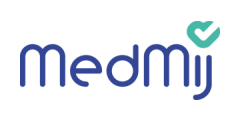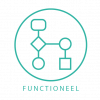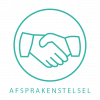MedMij:V2018.03 FHIR PDFA: verschil tussen versies
Redirect Simplifier-links to package |
k Tekst vervangen - "{{#customtitle:" door "{{DISPLAYTITLE:" |
||
| Regel 1: | Regel 1: | ||
{{ | {{DISPLAYTITLE:MedMij FHIR use case PDF/A}} | ||
[[Bestand:MedMij2.png |link=https://www.medmij.nl/|rechts|Naar medmij.nl]] | [[Bestand:MedMij2.png |link=https://www.medmij.nl/|rechts|Naar medmij.nl]] | ||
Versie van 20 jul 2020 01:14



Introduction

MedMij specifies the format PDF/A for exchanging unstructured documents containing health information. Forum Standaardisatie is a Dutch governmental organization that aims to stimulate the use of open standards. PDF/A is one of the standards that is recommended by Forum Standaardisatie. More information regarding PDF/A can be found here: https://www.forumstandaardisatie.nl/standaard/pdf-a1.
To achieve exchange of PDF/A files, MedMij adopts as much as possible from the Mobile access to Health Documents (MHD) profile from Integrating the Healthcare Enterprise (IHE) that defines a RESTful/HTTP interface to an XDS environment using HL7 FHIR STU3 resources. The MHD profile is written to be content agnostic and as such is suitable for much more than PDF/A. For the purposes of this use case, we have limited the scope to PDF/A.
MedMij includes the IHE MHD profile as a framework to exchange PDF/A documents. The next section summarizes MHD and contains references to this specification. The following section provides an adaptation of the MHD profile to specify exchange of PDF/A documents in a MedMij context. For example, the MHD actors and transactions are put into perspective of the MedMij actors and systems. The essence of the MHD profile is outlined and example transaction messages have been added.
Note: this page is part of the MedMij FHIR Implementation Guide and is a technical representation of the functional design published on this wiki page.
IHE MHD specification
Mobile access to Health Documents (MHD) profile defines a simple HTTP interface to an XDS like environment. It defines four transactions:
- submit submission sets, folders, new documents, and document metadata from the mobile device to a document receiver (Provide Document Bundle),
- find submission sets matching query parameters (Find Document Manifest),
- find document entries containing metadata based on query parameters (Find Document Reference),
- retrieve a copy of a specific document (Retrieve Document).
These transactions leverage the document content and format agnostic metadata concepts from XDS but simplify them for access by constrained environments such as mobile devices, or other resource-constrained systems. The MHD profile does not replace XDS. It can be used to allow mobile devices, or other resource-constrained systems, access to an XDS health information exchange.[1]
Wiki: Mobile acces to Health Document (MHD)
Document: MHD Supplement (Rev 2.3 July 24, 2017)
Additional Supplement: Appendix Z on HL7 FHIR
Underlying Standards:
- HL7 FHIR STU3 http://hl7.org/fhir/STU3
- RFC2616 IETF Hypertext Transfer Protocol – HTTP/1.1
- RFC3986 IETF Uniform Resource Identifier (URI): Generic Syntax
- RFC4627 The application/json Media Type for JavaScript Object Notation (JSON)
- RFC6585 IETF Additional HTTP Status Codes
Exchanging PDF/A documents

This section summarizes the IHE MHD profile to exchange PDF/A documents in a MedMij context.
This FHIR implementation guide assumes that the PHR system is able to make a connection to the right XIS that contains the patient's information. It does not provide information on finding the right XIS nor does it provide information about security. Moreover, each transaction is performed in the context of a specific authenticated patient, for whose context (token) has been established using the authentication mechanisms described in the 'Afsprakenstelsel'. Each XIS Gateway is required to perform filtering based on the patient associated with the context for the request, so only the records associated with the authenticated patient are returned. For this reason, search parameters should not be included for patient identification.
Actors and transactions involved
Table 1 shows the relevant actors, systems and FHIR capability statements in a MedMij context. The capability statements demonstrate the minimum requirements to be conformant to the full MHD specifications.
| Persons | Systems | FHIR Capability Statements | |||
|---|---|---|---|---|---|
| Name | Description | Name | Description | Name | Description |
| Patient | The user of a personal healthcare environment. | PHR | Personal health record | PDFA FHIR Client requirements | |
| Healthcare Provider | The user of a XIS | XIS | Healthcare information system | PDFA FHIR Server requirements | |
Table 1. Actors, systems and FHIR capability statements
Table 2 shows the MHD actors and transactions in perspective of the systems used in a MedMij context.
| Person | System | MHD Actors | MHD Transactions |
|---|---|---|---|
| Patient | |||
| PHR | |||
| Document Consumer | Find Document Manifest | ||
| Find Document Reference | |||
| Retrieve Document | |||
| Healthcare provider | |||
| XIS | |||
| Document Responder | Find Document Manifest | ||
| Find Document Reference | |||
| Retrieve Document |
Table 2. MHD actors and transactions in perspective of systems in a MedMij context
Transactions in scope
- Find Document Manifests – This transaction is used to issue parameterized queries that result in a list of Document Manifest resources.
- Find Document References – This transaction is used to issue parameterized queries that result in a list of Document Reference resources.
- Retrieve Document – This transaction is used to get documents.
Transactions out of scope
The MHD profile specifies how to send documents from a Document Source to a Document Receiver using the Provide Document Bundle transaction. However, sending PDF/A documents is currently out of scope for the MedMij context. The 'Afsprakenstelsel' first focuses on pulling data from a XIS to a PHR before considering push transactions. In the future, specifications of sending PDF/A documents from a PHR will be added.
Find and retrieve existing PDF/A document(s)
Find PDF/A or PDF/A collection
Discovery of PDF/A documents is done with the MHD defined transaction 'Find Document Reference' or 'Find Document Manifest'. The Find Document Reference retrieves FHIR DocumentReference Resources that represents a single reference to document per resource, for example, one PDF/A file. The Find Document Manifest retrieves FHIR DocumentManifest Resources. A DocumentManifest Resource gathers a set of DocumentReference Resources into a single package together with metadata that applies to the collection.
The Document Consumer requests DocumentReference or DocumentManifest Resources, matching a set of criteria, from the Document Responder. The Document Responder returns DocumentReference or DocumentManifest Resources that match the search criteria provided by the Document Consumer.
Request message
Search
The Document Consumer executes an HTTP GET conform to the FHIR RESTfull and search specification. A search query would have the following format.
GET [base]DocumentReference?[parameters]{&_format=[mime-type]}
GET [base]DocumentManifest?[parameters]{&_format=[mime-type]}
Example query to search for DocumentReferences of type Discharge summary.
GET http://example.org/fhir/DocumentReference?type=http://loinc.org|18842-5
Search Parameters
The Document Consumer may supply, and the Document Responder shall be capable of processing, all query parameters listed below. These search parameters are a selection of the defined search parameters by the HL7 FHIR specification (search parameters: DocumentReference, DocumentManifest). See also the HL7 FHIR STU3 specification for searching.
| DocumentReference | DocumentManifest | ||||
|---|---|---|---|---|---|
| Name | Type | Description | Name | Type | Description |
| indexed | date | When this document reference was created | created | date | When this document manifest created |
| author | reference | Who and/or what authored the document | author | reference | Who and/or what authored the manifest |
| type | token | Kind of document (LOINC if possible) | type | token | Kind of document set |
| class | token | Categorization of document | source | uri | The source system/application/software |
| status | token | superseded | entered-in-error | status | token | superseded | entered-in-error |
| setting | token | Additional details about where the content was created (e.g. clinical specialty) | |||
| period | date | Time of service that is being documented | |||
| facility | token | Kind of facility where patient was seen | |||
| event | token | Main clinical acts documented | |||
| securitylabel | token | Document security-tags | |||
| format | token | Format/content rules for the document | |||
| related-id | token | Identifier of related objects or events | |||
Response message
The Document Responder shall process the query to discover the DocumentReference or DocumentManifest entries that match the search parameters given. The Document Responder returns an HTTP Status code appropriate to the processing as well as a Bundle including the matching DocumentReference or DocumentManifest Resources. When the Document Responder needs to report an error or warning, it shall use HTTP error response codes and should include a FHIR OperationOutcome with more details on the failure or warning. If the request message is processed successfully, whether or not any DocumentReference or DocumentManifest Resources are found, the HTTP status code shall be 200.
The Document Responder shall place into the 'DocumentReference.content.attachment.url' element a full URL that can be used by the Document Consumer to retrieve the document using Retrieve Document transaction.
Example of a response message
Example of a Bundle with 11 DocumentReference Resources. Only the first DocumentReference is displayed.
<Bundle xmlns="http://hl7.org/fhir">
<id value="c0beb362-efc7-4cb9-b35a-c6cea0742156" />
<meta>
<versionId value="1498fcb4-af9c-404f-b445-e6634619df55" />
<lastUpdated value="2017-10-25T11:25:00.336+00:00" />
</meta>
<type value="searchset" />
<total value="11" />
<link>
<relation value="self" />
<url value="http://vonk.furore.com/DocumentReference" />
</link>
<entry>
<fullUrl value="http://vonk.furore.com/DocumentReference/c4f22730-bb5a-4f12-b4ef-c7bde0784426" />
<resource>
<DocumentReference>
<id value="c4f22730-bb5a-4f12-b4ef-c7bde0784426" />
<meta>
<versionId value="eacd5b87-21bc-42e1-8a4d-d5462b1e7368" />
<lastUpdated value="2017-09-22T16:10:22.096+00:00" />
<profile value="http://ihe.net/fhir/StructureDefinition/IHE.MHD.DocumentReference" />
</meta>
<masterIdentifier>
<system value=" http://www.acme.com/identifiers/patient" />
<value value="b19f24b7-e72c-44c0-bdf4-7e45d06db1b6" />
</masterIdentifier>
<identifier>
<value value="29daadee-26e1-4d6a-9e6a-7f4af9b58877" />
</identifier>
<status value="current" />
<docStatus value="final" />
<type>
<coding>
<system value="http://fhir.nhs.net/ValueSet/correspondence-document-type-1" />
<code value="861421000000109" />
<display value="End of Life Care Coordination Summary" />
</coding>
</type>
<subject>
<reference value="Patient/smart-99912345" />
</subject>
<created value="2016-03-08T15:26:00+01:00" />
<indexed value="2016-03-08T15:26:01+01:00" />
<author>
<reference value="Practitioner/smart-Practitioner-71081332" />
</author>
<description value="EOL" />
<securityLabel>
<coding>
<system value="http://hl7.org/fhir/ValueSet/security-labels" />
<code value="V" />
<display value="very restricted" />
</coding>
</securityLabel>
<content>
<attachment>
<contentType value="application/pdf" />
<url value="http://example:9556/svc/fhir/Binary/1e404af3-077f-4bee-b7a6-a9be97e1ce32" />
<size value="1000" />
<title value="EPaCCs Place chosen to die summary" />
</attachment>
</content>
<context>
<facilityType>
<coding>
<system value="http://hl7.org/fhir/ValueSet/c80-facilitycodes" />
<code value="83891005" />
<display value="Solo practice private office" />
</coding>
</facilityType>
</context>
</DocumentReference>
</resource>
<search>
<mode value="match" />
</search>
</entry>
.......
Retrieve PDF/A document
After obtaining the location of the PDF/A document in the DocumentReference.content.attachment.url, the Document Consumer requests the document from the Document Responder. The Document Responder sequentially serves the PDF/A document to the Document Consumer. The context that was established in the initial request shall also apply when retrieving/serving the document contents.
Request Message
This message is an HTTP GET request to retrieve the document. See an example below.
GET http://example:9556/svc/fhir/Binary/1e404af3-077f-4bee-b7a6-a9be97e1ce32
The Document Consumer may provide an HTTP Accept header, according to the semantics of the HTTP protocols (see RFC2616, Section 14.1). The only MIME type assured to be returned is the MIME type indicated in the 'DocumentReference.content.attachment.contentType'. The HTTP If-Unmodified-Since header shall not be included in the GET request
Response Message
The Document Responder shall process the request message. The Document Responder returns an HTTP Status code appropriate to the processing as well as the content of the requested PDF/A document in the HTTP message-body.
The document may be placed inside a FHIR Binary resource if it is useful to handle pure binary content using the same framework as other resources. Binary resources behave slightly differently to all other resources on the RESTful API. Specifically, when a read request is made for the binary resource that doesn't explicitly specify the FHIR content types "application/fhir+xml" or "application/fhir+json", then the content should be returned using the content type stated in the resource. e.g. if the content type in the resource is "application/pdf", then the content should be returned as a PDF directly.[2]
When the Document Responder needs to report an error or warning, it shall use HTTP error response codes and should include a OperationOutcome with more details on the failure or warning. If the Retrieve Document message is processed successfully the HTTP status code shall be 200.
Example of a response message
<Binary>
<id value="1e404af3-077f-4bee-b7a6-a9be97e1ce32" />
<meta>
<versionId value="948f3653-c9a3-4831-bae5-f629319c194f" />
<lastUpdated value="2017-09-20T17:55:14.098+00:00" />
</meta>
<contentType value="application/pdf" />
<content value="JVBERi0xLjUNJeLjz9MNCjU1I........"/>
</Binary>
Interactions, operations, search parameters
Interactions
The following logical interactions are needed for this use case:
Operations
There are no defined operations for this use case.
Search parameters
The following search parameter types need to be supported for this use case. No search result parameters need to be supported.
Search parameter types:
List of StructureDefinitions
IHE has defined StructureDefinitions and other Conformance resources applicable for this use case. They are listed under FHIR Implementation Guide on the IHE MHD wiki.